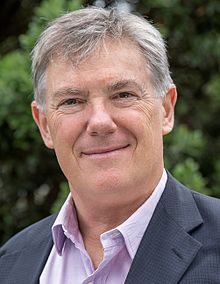ESG transparency site heads for $50m switch
New Zealand ethical investing analysis website Mindful Money has channelled about NZ$10 million (A$9.7 million) into its approved KiwiSaver funds over the last 12 months. In a new report published last week, Mindful Money says it “has set a target of NZ$50 million for year two”.
“Anecdotal evidence from investors and fund providers suggests that the value of funds shifted is far higher, since many investors undertake the research on Mindful Money’s website and then go directly to the provider to invest,” the paper says. “Interviews reveal that these changes have already contributed to a significant impact on the sector.”
Earlier this month, Mindful Money – a venture launched by chief executive and former Green Party MP, Barry Coates, a couple of years ago – expanded its coverage to the entire NZ retail funds market. According to the report titled ‘Inside the black box of New Zealand investment funds’, improved transparency of underlying securities has lead to “a significant decrease in the investments that New Zealand retail investors would like to avoid”.
For instance, the study says over the 12 months to the end of March this year, KiwiSaver fund exposure to fossil fuels has dropped by 23 per cent. “There has been a fall in the proportion of investment across all issues of concern as more funds have deepened their ethical policies and practices,” the report says. “Even so, $6.4 billion of retail KiwiSaver and investment funds are still invested in companies that most New Zealanders would like to avoid. These are particularly concentrated in Animal Welfare issues (measured by non-pharmaceutical products tested on animals), Human Rights violations and Fossil Fuels.”
Mindful Money mostly judges funds on whether they have excluded certain ‘sin stocks’ from their portfolios – allowing investors to tweak the dials across 10 factors to select a personal ethically compliant fund. However, the report says the system also takes into account positive environmental, social and governance (ESG) investment strategies.
The study says “analysis of the data shows that claims of ESG management are not always reflected in the composition of portfolios”.
“Fund providers that claim to use ESG management often have companies that behave badly and are resistant to change, as shown by Exxon-Mobil being included in the portfolios of 126 KiwiSaver funds,” the report says. “It is important that claims of using ESG management are backed up by reporting on the outcomes of engagement with companies, and externally verified.”
According to the Mindful Money paper, demand for ‘ethical’ investing is rising with the next phase likely to feature more “viable” positive ESG options rather than negative screening alone.
Mindful Money receives a small fee for each fund switch into certain approved products intermediated via its website.
– David Chaplin, Investment News NZ











